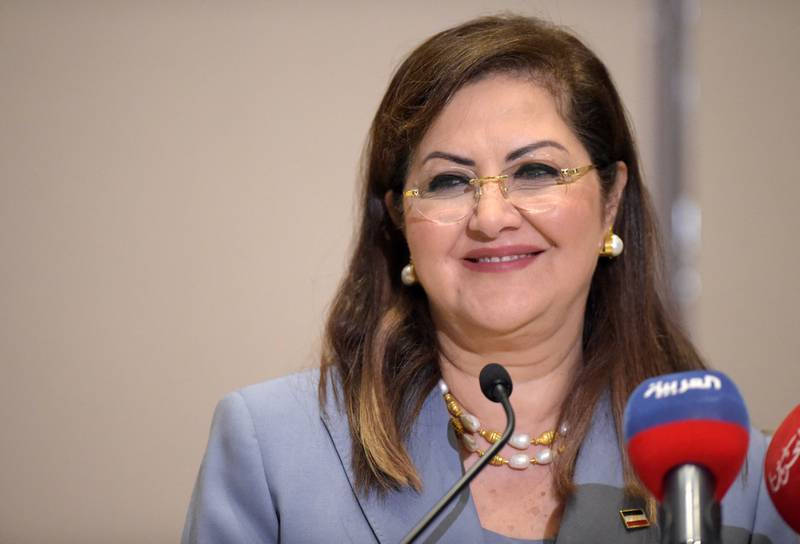Egypt’s economy grew 6.2% in 2021-22 fiscal year

Collected Image
Egypt’s economy grew 6.2 percent in the 2021-2022 fiscal year that ended on June 30, said the country's Minister of Planning and Economic Development, Hala El Said. The figure reflects stronger-than-expected economic activity in the first nine months of the fiscal year, partly offsetting the repercussions of the Russia-Ukraine war in the last quarter.
The country’s economy grew about 8 percent between July 2021 and March 2022, expanding 9.8 per cent in the first quarter, 8.3 percent in the second and 5.4 percent in the third quarter, Egyptian Cabinet data indicated. A weaker showing in the fourth quarter was expected “given the privation of the war, monetary tightening and devaluation”, Mohamed Abou Basha, head of macroeconomic analysis at EFG Hermes Research, told The National.
Russia’s invasion of Ukraine in late February has put pressure on Egypt's food security as the world’s largest wheat importer. Heavy dependence on food imports and rising world commodity prices have driven inflation to double-digit annual rates.
In March, Egypt’s central bank allowed the Egyptian pound to depreciate against the US dollar by more than 14 percent. Business activity in Egypt’s non-oil economy dropped to its lowest level in two years in June, as new orders fell and selling prices rose amid mounting inflationary pressure, according to the S&P Global Purchasing Managers’ Index.
EFG Hermes had forecast fiscal-year growth of 6.8 percent, “suggesting weaker softening of growth in the fourth quarter than we expected”, Mr Abou Basha said.
However, the 6.2 percent figure is in line with the Egyptian government’s latest forecast in May. It is slightly higher than the International Monetary Fund’s forecast of 5.9 percent and the World Bank’s forecast of 6.1 percent.
In its June report, the World Bank said growth was supported by rebounds in export-orientated sectors following the Covid-induced slowdown in 2020. Egypt recorded modest growth of 3.3 percent in fiscal year 2020-21 during the height of the Covid-19 pandemic.
Export revenue in March soared about 80 percent above pre-pandemic highs. Remittances from Egyptian workers abroad increased 7.7 percent during the first four months of this year to $11.1bn, compared with $10.3bn during the same period in 2021, the Central Bank of Egypt said.
The North African country is targeting GDP growth of 5.5 percent in the 2022-23 fiscal year that started on July 1, while the World Bank has forecast growth of 4.8 percent.
Rising food and energy inflation will slow income growth and raise input costs in key sectors, the World Bank said in its June report. “Growth in Egypt will still be supported by the gas extractives sector, as it benefits from elevated prices, by remittances from the GCC, and by continued reform momentum,” it said.
The country’s economy grew about 8 percent between July 2021 and March 2022, expanding 9.8 per cent in the first quarter, 8.3 percent in the second and 5.4 percent in the third quarter, Egyptian Cabinet data indicated. A weaker showing in the fourth quarter was expected “given the privation of the war, monetary tightening and devaluation”, Mohamed Abou Basha, head of macroeconomic analysis at EFG Hermes Research, told The National.
Russia’s invasion of Ukraine in late February has put pressure on Egypt's food security as the world’s largest wheat importer. Heavy dependence on food imports and rising world commodity prices have driven inflation to double-digit annual rates.
In March, Egypt’s central bank allowed the Egyptian pound to depreciate against the US dollar by more than 14 percent. Business activity in Egypt’s non-oil economy dropped to its lowest level in two years in June, as new orders fell and selling prices rose amid mounting inflationary pressure, according to the S&P Global Purchasing Managers’ Index.
EFG Hermes had forecast fiscal-year growth of 6.8 percent, “suggesting weaker softening of growth in the fourth quarter than we expected”, Mr Abou Basha said.
However, the 6.2 percent figure is in line with the Egyptian government’s latest forecast in May. It is slightly higher than the International Monetary Fund’s forecast of 5.9 percent and the World Bank’s forecast of 6.1 percent.
In its June report, the World Bank said growth was supported by rebounds in export-orientated sectors following the Covid-induced slowdown in 2020. Egypt recorded modest growth of 3.3 percent in fiscal year 2020-21 during the height of the Covid-19 pandemic.
Export revenue in March soared about 80 percent above pre-pandemic highs. Remittances from Egyptian workers abroad increased 7.7 percent during the first four months of this year to $11.1bn, compared with $10.3bn during the same period in 2021, the Central Bank of Egypt said.
The North African country is targeting GDP growth of 5.5 percent in the 2022-23 fiscal year that started on July 1, while the World Bank has forecast growth of 4.8 percent.
Rising food and energy inflation will slow income growth and raise input costs in key sectors, the World Bank said in its June report. “Growth in Egypt will still be supported by the gas extractives sector, as it benefits from elevated prices, by remittances from the GCC, and by continued reform momentum,” it said.
Source: https://www.thenationalnews.com
Tags :
Previous Story
- UAE, Egypt and Jordan ministers hold first meeting...
- Moody's affirms Egypt's credit rating on economic resilience
- Where do people want to travel to this...
- Egyptian FinTech app Khazna raises $38m to fuel...
- Facebook says mercenary spy firms affected 48,000 people
- Azamara announces new five-month world voyage
- How Egypt’s tourism businesses are bouncing back
- Egypt signs MoU with OECD for 3-year development...